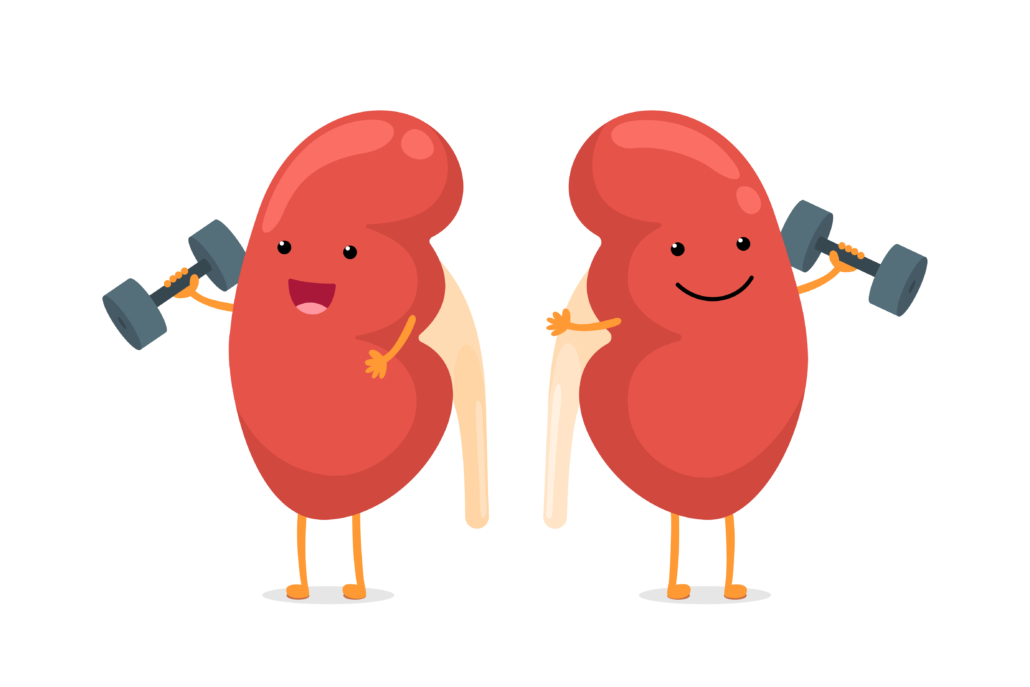We include products in articles we think are useful for our readers. If you buy products or services through links on our website, we may earn a small commission.
Is the Carnivore Diet Safe for Your Kidneys?

A common carnivore diet concern is that it can harm the kidneys. This concern is based on the myth that high-protein intake causes excess strain on the kidneys.
In fact, studies show that though increased protein does require the kidneys to filter more nitrogen as a byproduct from protein, there is no evidence that this harms the kidneys.
When considering the effects of a carnivore diet, it’s far more likely that this way of eating dramatically reduces the main risk factors for developing kidney disease, including metabolic syndrome and type-II diabetes.
In this article, we’ll explore what the science says about how a carnivore diet can affect kidney health.
Table of Contents
What is the Carnivore Diet?
The carnivore diet is a high-fat, low-carb, moderate-protein way of eating. It eliminates all plant foods, and entails consuming only animal products.
People choose carnivore as a way to realign their dietary habits with the way that humans evolved to eat–as hypercarnivorous apex predators–for nearly 2 million years before the advent for agriculture only 10,000 years ago.
The carnivore diet approach to health and wellness views animal fats, muscle, and micronutrients as the foundation of all healthy physiological processes beginning with cell structures and hormonal regulation.
Plant products and carbohydrates are non-essential–meaning they are not necessary for our health and survival. They expose the body to antigenic stressors, including excess fiber, carbs, and naturally occurring antinutrients and toxins. These plant food factors damage tissues and promote chronic inflammation and autoimmune disorders–the roots of modern diseases.
How High Protein Diets Do and Do Not Affect Kidney Health
The concern that a carnivore diet may harm kidneys is based on the view that one of the main roles of the kidneys is to metabolize and filter out nitrogen resulting from consuming protein.
It follows that high protein intake leads to a process called “hyperfiltration” and that this puts a strain on the kidneys that can cause damage.
Studies do show that high-protein diets result in changes in kidney function, including glomerular filtration rate (GFR) AKA “hyperfiltration” of nitrogen from protein metabolism.
And there is some research showing that high-protein diets can be harmful for people with pre-existing chronic kidney diseases.
However, studies show that in people with healthy kidneys, hyperfiltration is normal, adaptive, and not harmful.5
We see this healthy adaptive response play out in the long term for people who have donated a kidney and are left with only one kidney.
The remaining kidney is tasked with filtering much more protein, and their GFR (a marker of hyperfiltration) goes up. However, studies show that kidney donors do not have an elevated risk of kidney disease.
A 2018 meta-analysis of numerous randomized control trials found no evidence that low-carb diets harm kidney health, even for people with type 2 diabetes.
The Greatest Risk Factors for Kidney Damage
When considering the health of your kidneys, the science is clear that increased protein intake is not a concern for people with normal kidney function.
The real risk factors for kidney damage and disease are chronic inflammatory conditions, including type 2 diabetes, heart disease, and metabolic syndrome.
All of these conditions are strongly related to the Standard American diet loaded with inflammatory vegetable oils and carbohydrates.
Studies show that even for non-diabetic people, consuming more carbs increases the risk of chronic kidney disease.4
As a low-carb, high-fat, moderate-protein diet, carnivore may dramatically reduce the risk of kidney disease.
Effects of The Carnivore Diet on Kidneys: The Takeaway
Eating an all meat carnivore diet increases protein intake for most people.
Since one of the main biological functions of the kidneys is to filter out byproducts from protein metabolism, there may be a fear of excessive strain on the kidneys, leading to damage and disease.
However, there is a robust body of evidence showing that, for people with normal liver function, increased protein metabolism and filtration in the kidneys is a healthy, normal, and adaptive response with no long-term negative effects.
The greatest risk factors for kidney disease are chronic inflammatory conditions linked to high-carb, modern diets, including type-2 diabetes, heart disease, and obesity.
A low-carb, high-fat, moderate-protein carnivore diet can target the conditions that actually contribute to kidney disease.





















